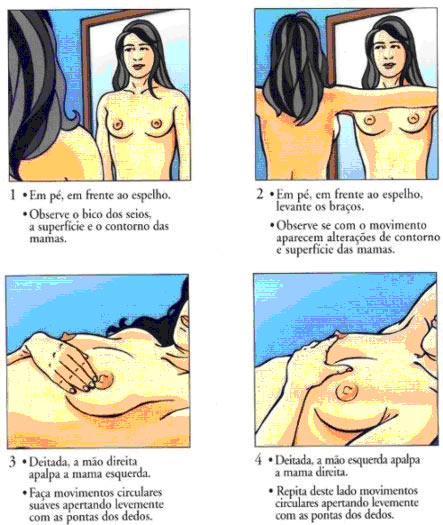Programa de Mastologia da Faculdade de Medicina da Universidade Federal de Goiás, Serviço de Ginecologia e Mama do Hospital Araújo Jorge da Associação de Combate ao Câncer em Goiás e Fundação Oswaldo Cruz, Goiânia, GO. ruffojr@terra.com.br
OBJECTIVE: To ascertain frequency of women in a hospital sample in Goiânia, Brazil, who know about and carry out breast-self examination (BSE) as well as the factors associated to knowledge and practice of this diagnostic method. METHODS: A descriptive study was carried out aiming to identify factors potentially associated to BSE in a sample of 2,073 women. Data was collected using a standardized questionnaire of age, education level, origin, parity, civil status, income and breastfeeding antecedents of the women. RESULTS: 75% of women knew about BSE and 51% practiced it. A multivariate analysis yielded the following odds ratios: BSE knowledge was 4.2 times higher among housewives than women working away from home; 2.1 times higher among those aged 30 years or older; 2.1 times higher in those with 5 years or more of schooling, 1.98 times higher among those living in the Greater Goiânia Region, 1.4 times higher among those with 2 children or more, and 1.68 times higher among those with an income above 2 minimum wages. In relation to BSE practice, it was 1.7 times more frequent among housewives and among those 30 year or older, 1.8 times more frequent among those with more years of schooling and 1.2 more frequent among women with an income above 2 minimum wages. CONCLUSION: The majority of women knew about BSE, and half of them, practiced it. Less knowledge and less frequent practice of BSE was more often detected in poorer women, those with less health information and awareness about the usefulness of this method for early breast cancer detection.
PMID: 17160309 [PubMed - indexed for MEDLINE]



Nenhum comentário:
Postar um comentário